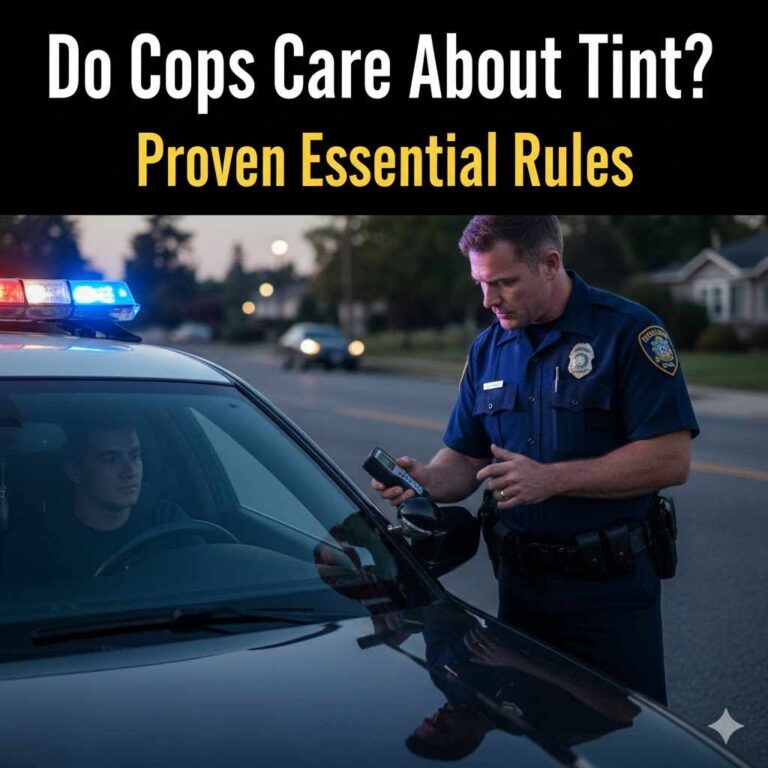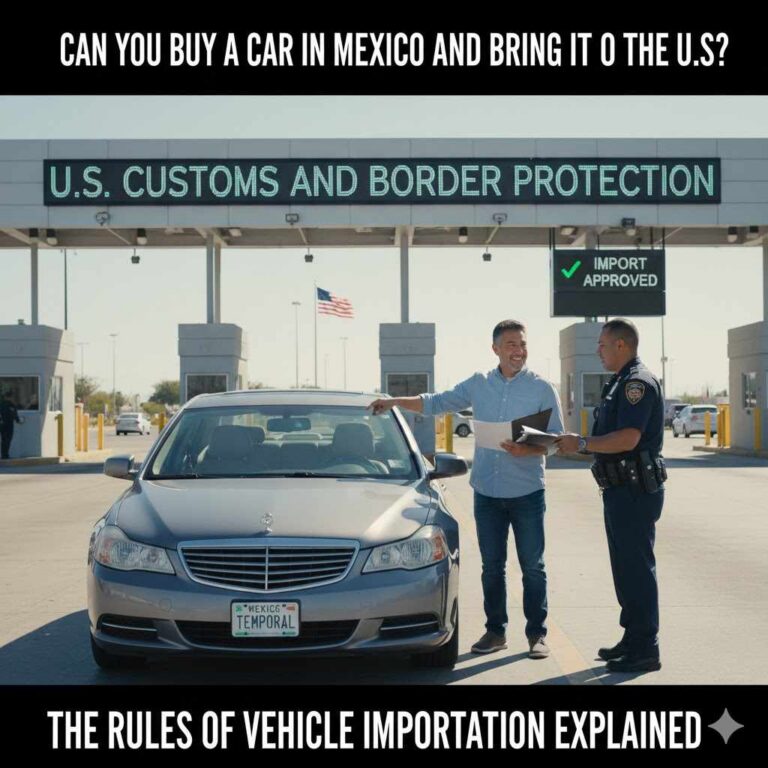If Your Car is Stolen, Does Insurance Cover It? Unveiled!
Yes, car insurance typically covers theft if you have comprehensive coverage. Check your policy for specific terms and conditions.
Car theft can be a distressing experience, leaving you unsure about your next steps. Understanding your insurance coverage is crucial in such situations. Comprehensive coverage protects against theft, vandalism, and natural disasters. Without this type of insurance, you might face significant financial loss.
Always review your policy to know what is included. Many policies have deductibles and specific limits on payouts. Filing a police report promptly is essential for insurance claims. Stay informed about your coverage to navigate this challenging time effectively. Knowing what to do can make the process smoother and less overwhelming.
Introduction To Car Theft And Insurance
Car theft affects many people every year. The harsh reality is that it can happen to anyone. Losing a car is stressful and upsetting. Understanding insurance helps in these situations.
Insurance plays a critical role in theft scenarios. Most policies cover stolen vehicles. It is important to know the terms and conditions of your policy. Reporting the theft to the police is essential. Keep all documents ready for your insurance claim.
Many factors influence the coverage amount. The car’s value, type of insurance, and local laws matter. Always review your policy to ensure you have adequate protection.
Types Of Car Insurance Policies
Liability insurance</strong helps pay for damages to others in an accident. It does not cover your own car.
Comprehensive insurance protects against theft, vandalism, and natural disasters. It covers damages not caused by a collision.
| Type of Coverage | Description |
|---|---|
| Liability Coverage | Covers damages to others in an accident. |
| Comprehensive Coverage | Covers theft, vandalism, and non-collision damages. |
Understanding these types helps choose the right policy. Comprehensive insurance is essential for added protection.
Understanding Theft Coverage
Understanding theft coverage is essential for car owners. Most insurance policies offer protection against theft. This means you can receive compensation if your car is stolen.
The scope of theft protection often includes full value coverage. Some policies cover theft of personal items inside the car. Always check your specific policy details for clarity.
Limitations and exclusions can vary. For instance, some policies may not cover theft if the keys are left inside the car. Another common exclusion is theft due to negligence.
| Coverage Type | Description |
|---|---|
| Full Value Coverage | Compensation for the car’s current market value. |
| Personal Items Coverage | Protection for belongings inside the vehicle. |
| Negligence Exclusion | No coverage if keys are left in the car. |
Filing A Claim For A Stolen Vehicle
Act quickly after discovering your car is stolen. First, call the police to report the theft. Provide them with your car’s details like the make, model, and VIN. Obtain a copy of the police report for your insurance claim.
Next, contact your insurance company. Inform them of the situation and provide the police report. Fill out any required forms and provide necessary documents. Keep a record of all communications with your insurance.
Many insurance policies cover stolen vehicles, but check your policy for specific details. Some may require a deductible before coverage kicks in. Be aware of the time limits for filing a claim.
Stay proactive throughout the claims process. Follow up with your insurance regularly to ensure your claim is being processed.
Investigation Process
The investigation process for stolen cars is crucial. Insurers need to confirm the theft before paying claims. They will check the police report and any evidence. This helps them ensure the claim is valid. A thorough investigation can take time. All details must be verified before approval.
Insurers may ask for additional information from the car owner. This can include the car’s location, last known driver, and more. If everything checks out, the claim can move forward. Fast and accurate investigations can help owners recover faster.
Settlement And Reimbursement
Insurance companies use various methods to determine the value of a stolen car. They often rely on the market value before the theft. Factors like the car’s age, condition, and mileage play a big role.
In most cases, the insurance payout equals the car’s actual cash value. This is the price the car would sell for in the current market. Keep in mind, some policies have a deductible amount that reduces the payout.
Once the insurance company processes the claim, they will issue a settlement check. This check may take time based on the investigation. Always keep records of your claim to ensure a smooth process.
Preventive Measures To Avoid Car Theft
Implementing effective safety practices can help deter car thieves. Always lock your doors and close windows. Park in well-lit areas to increase visibility. Use a steering wheel lock for added security. Consider installing a car alarm that alerts you to potential theft.
Technology plays a crucial role in theft prevention. GPS tracking devices help recover stolen vehicles quickly. Smart keys can prevent unauthorized access. Some apps allow you to monitor your car’s location from your phone. Surveillance cameras can also deter thieves from targeting your vehicle.
What Happens If Your Car Is Recovered?
After a car is recovered, insurance companies follow specific protocols. They will assess the damage to your vehicle. This includes any theft-related harm and other issues that occurred during the time it was stolen.
Insurance may cover repair costs if damages are extensive. However, there can be deductibles involved. Always check your policy for details on coverage.
In some cases, the car may be deemed a total loss. If this happens, the insurer will pay the actual cash value of the car. This value considers factors like age and condition before the theft.
| Recovery Status | Insurance Action |
|---|---|
| Car Repaired | Cover repair costs after deductible |
| Car Total Loss | Pay actual cash value of the car |
Legal Aspects And Obligations
Car theft is a serious issue. Insurance companies require that stolen vehicles be reported immediately. Most states mandate a police report within a certain timeframe. This helps in verifying the claim.
Reporting your stolen vehicle can also protect you from insurance fraud. Filing a false claim is illegal and can lead to severe penalties. Always provide accurate information to your insurance company. This ensures you receive the coverage you deserve.
Keep records of all communications with your insurer. This documentation can help if issues arise during the claims process.
Insurance Myths Debunked
Many people believe that insurance always covers theft. This is not true. Some policies may have exclusions. Understanding these can save you money and stress.
Common misconceptions include:
- All policies cover theft: Not all policies include this coverage.
- Personal items are covered: Insurance usually does not cover items inside the car.
- Stolen cars are always replaced: Some policies may only pay the car’s current value.
Clarifying what insurance does not cover:
| Coverage Type | Details |
|---|---|
| Personal Items | Not covered by most auto insurance. |
| Old Cars | May only pay for the depreciated value. |
| Negligence | Insurance may not cover theft due to negligence. |
Choosing The Right Policy For Theft Protection
Choosing the right policy for theft protection is crucial. Evaluate different insurance options carefully. Look for policies that cover theft and vandalism. Understanding deductibles is important. A low deductible means less money out of pocket. Consider the claim process. A simple process is better for quick help.
Compare prices and coverage. Some policies offer better protection at a similar cost. Read reviews from other customers. Their experiences can guide your choice. Check for additional features like rental car coverage. This can be helpful while your car is replaced.
Seek advice from insurance agents. They can explain terms and options. Make sure to ask about exclusions. Knowing what is not covered is just as important. A comprehensive policy gives peace of mind against theft.
Conclusion: Staying Informed And Protected
Understanding your insurance policy is crucial. Each policy is different. Coverage for stolen cars may vary. Check if your policy includes comprehensive coverage. This type covers theft. Know your deductibles and limits. These affect your payout. Read your policy carefully. Ask questions if unsure.
Dealing with car theft can be stressful. Report the theft to the police immediately. Also, inform your insurance company as soon as possible. Provide all necessary information. This helps speed up the process. Keep all documents safe. This includes the police report and claim forms.
Staying informed helps you protect your investment. Regularly review your policy. Update it as needed. Understanding your coverage ensures you are prepared.
Frequently Asked Questions
Does Insurance Cover Stolen Cars?
Yes, car insurance can cover stolen vehicles. However, it depends on your policy type. If you have comprehensive coverage, you are likely covered for theft. Always check your specific policy details to confirm your coverage limits and deductibles.
What Should I Do If My Car Is Stolen?
Immediately report the theft to local authorities. File a police report, providing details like your VIN and license plate. Next, notify your insurance company to start the claims process. This will help you secure your claim and potentially recover your vehicle.
How Does Comprehensive Insurance Work For Theft?
Comprehensive insurance covers non-collision incidents, including theft. If your car is stolen, you can file a claim under this coverage. The insurer will assess the situation and may reimburse you for the car’s value, minus any applicable deductible.
Can I Claim For Personal Items Stolen From My Car?
Typically, car insurance does not cover personal items. Most policies only cover the vehicle itself. You might need separate renters or homeowners insurance for stolen belongings. Always check your insurance policy to confirm what is covered.
Conclusion
Car theft can be a stressful experience. Understanding your insurance coverage is essential for peace of mind. Most auto insurance policies provide protection against theft. Always review your policy details to ensure you’re adequately covered. Staying informed helps you navigate the aftermath of such incidents more effectively.
Stay vigilant and safe!






